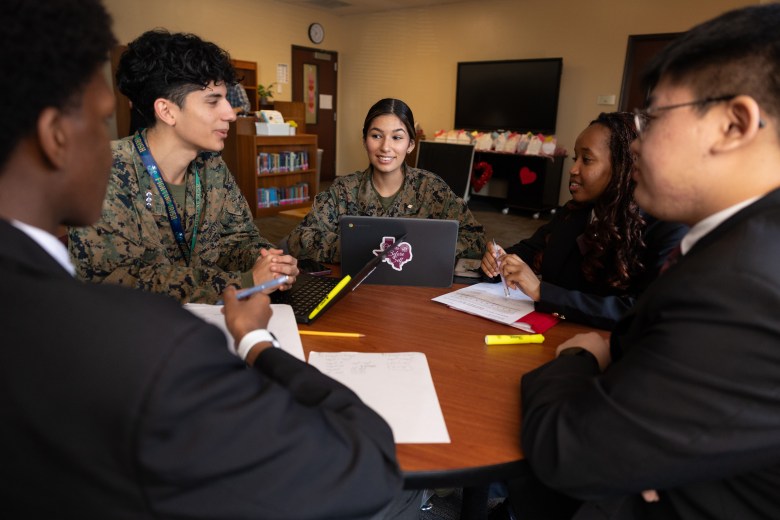Opinion: A Closed Government Was Not the Lesson I Hoped for My Texas Students in D.C.
The Impact of a Government Shutdown on Student Leadership Opportunities
After spending decades in the Marine Corps and in education, I have come to understand the importance of servant leadership and diplomacy. These values should be taught and nurtured in our schools. That is why I was excited to bring 32 high school seniors from Texas to Washington, D.C., this fall for a week of engagement and learning with top U.S. government and international leaders.
Unfortunately, instead of open doors, we faced a government shutdown and had to cancel our trip. This disruption affected not only us but also government employees, military members, and their families serving overseas, as well as all Americans who rely on government services in businesses, schools, national parks, air travel, and the postal service.
Our trip was not meant to be a typical rushed tour of monuments. It was a highly selective, long-anticipated capstone experience. We had planned for intensive interactions with government leaders at the Naval Academy and the Pentagon, discussions at the State Department, and a leadership panel with senators and congressmembers. Our students hoped to explore potential careers and even practice their Spanish and Mandarin skills at the Mexican and Chinese embassies.
The students not only missed out on connecting with these leaders and making important connections for college and career, but they also learned a harsh lesson: when leadership and diplomacy fail, it has real consequences. This is a reminder that we need to teach these skills, and the principles that support them, in our schools.
Understanding the DIME Framework and Civic Responsibility
Senior members of the military know that the DIME framework—diplomatic, informational, military, and economic—should guide and support strategic objectives, especially on the international stage. My time in the Corps taught me the essential role of honesty and trust in conversations, negotiations, and diplomacy. In civic life, this approach preserves democracy, yet the government shutdown demonstrates what happens when the mission shifts from solving problems to scoring points.
Our elected leaders were tasked with a mission, and the continued shutdown shows a breakdown in key aspects of governance and public service. That’s the real teachable moment of this shutdown. Democracy works when leaders can disagree without disengaging; when they can argue, compromise, and keep doors open. If our future leaders can’t practice those skills, shutdowns will become less an exception and more a way of governing.
The Importance of Language and Communication
With opposing points of view, communication is essential. Bridging language is invaluable. As the adage goes, talk to a man in a language he understands, that goes to his head. Speak in his own language, that goes to his heart. That is why, starting in kindergarten, we teach every student in our charter school network English, Spanish, and Mandarin Chinese.
Some of our graduates will become teachers, lawyers, doctors, and entrepreneurs. Others will pursue careers in public service or navigate our democracy on the international stage. All will enter a world more fractured than the one I stepped into as a Marine.
While our leaders struggle to find common ground, studies show that nationally, only 22 percent of eighth graders are proficient in civics, and fewer than 20 percent of American students study a foreign language. My students are exceptions, preparing to lead in three languages and through servant leadership, a philosophy that turns a position of power into a daily practice of responsibility and care for others.
Preparing Students for the Future
My students represent our ILTexas schools, but they also carry something larger: the hopes of their families, communities, and even their teenage peers across the country. Some hope to utilize their multilingual skills, motivated by a desire to help the international community. Others want to be part of the next generation of diplomats and policy thinkers ready to face modern challenges head-on.
To help them, we build good habits into the school day. Silent hallways instill respect for others. Language instruction builds empathy and an international perspective. Community service requirements (60 hours per high school student) and projects, as well as dedicated leadership courses and optional participation in our Marine Corps JROTC program give students regular chances to practice purpose over privilege.
Educators should prepare young people for the challenges they will inherit, whether in Washington, in our communities, or on the world stage. But schools can’t carry this responsibility alone. Students are watching all of us. It’s our duty to show them a better way.
We owe our young people more than simply a good education. We owe them a society in which they can see these civic lessons modeled by their elected leaders, and a path to put them into practice.
Eddie Conger is the founder and superintendent of International Leadership of Texas, a public charter school network serving more than 26,000 students across the state, and a retired U.S. Marine Corps major.




Leave a Reply